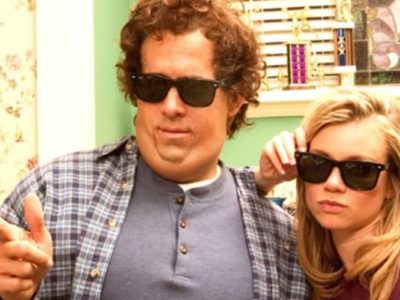I spent my first year at the University of North Carolina at Chapel Hill panicking. I was always conscientious to a fault when it came to school, skipping playtime to do homework in middle school and cramming until the moment tests started in high school.
But college was a new and more terrifying animal.
I attacked the stress of college academics by overpreparing and working constantly—checking deadlines and due dates daily, losing sleep in favor of perfecting citations, spending three hours on Prezis that would look fine after one hour, the list goes on and on. A week before final exams, my body decided I needed to break my cycle of overwork and worry.
I woke up one May morning feeling stabbing pains throughout my chest. Twinges of discomfort had flared in my abdomen for several days, but they seemed mild, like the pinpricks of a syringe needle. That morning it felt more like a knitting needle jabbing me in the heart. I was supposed to present my final project for English Composition and Rhetoric in 40 minutes. But even for me, a heart attack took priority over academics.
Then I did what any responsible, independent adult would do: I called my mother. “Mom, my chest hurts and I think I need to go to the hospital. I’m calling 911.”
“Call right now and then find your RA. I’ll be there as soon as I can.”
My parents live two and a half hours from Chapel Hill, and I needed help closer at hand. I made myself walk carefully out of my room, trying not to lose my balance and almost immediately bumped into a gangly form—my RA. He was carrying a frying pan full of fresh scrambled eggs. His goal shifted from breakfast to crisis management as soon as I spurted out, “I need to go to the hospital.” He hurried me outside and waited with me as I dialed 911 and requested an ambulance.
Minutes after my call, two paramedics rolled up in an ambulance and took my vital signs, which apparently did not necessitate any cinematic shouts of “Hurry, she’s coding!” or any stampede to the defibrillator. They nestled me into a stretcher and drove to the emergency room with the ambulance lights off.
My pain continued but lessened in intensity. My concern waned a bit when I arrived in the emergency room and saw the nurses completely unruffled by my imminent demise. I was judged stable enough to wait for the cardiologist.
A nurse deposited me in a cot and handed me a stack of paperwork to fill out, heart attack be damned. I wrote out endless phone and Social Security numbers, then sent an email to my English professor, acknowledging to him—and myself—that I had an emergency and my schoolwork would need to wait.
Ten minutes later, a kind nurse attached electrodes to my chest, recording my pulse patterns on a roll of paper that sprang from the EKG machine and went to the cardiologist for interpretation. By the time my mother arrived, breaking speed limits and making the journey to Chapel Hill in half the normal time, the cardiologist returned with a verdict: No cardiac abnormalities.
No official cause was ever found for my chest pains.
However, the casual, practically eye-rolling attitude of the emergency staff told me that I was not the first freshman to present with a heart attack before finals. My father also later told me that he too felt chest pains when under great stress. His description of his symptoms sounded identical to my experience.
My unofficial self-diagnosis was “exams.”
I stressed myself over college academics to the point I put myself in the ER.
The whole episode was embarrassing, but I view it as life giving me a warning shot in the air instead of a bullet to the heart. I learned that I needed to change the way I approached college. I developed some skills and ideas that have stuck with me and improved my daily life at school.
One skill my cardiac scare taught me was self-observation. I spent my first year of college keeping my eyes on homework, deadlines and studying. I didn’t look at my emotions, much less try to manage them and balance them against the demands of daily college life. I only learned to pay attention to my feelings of stress when they began to affect my physical health.
Now I consciously make a point to watch my emotions. Physical symptoms are one sign I use to gauge my needs. If I have a queasy stomach or abnormal exhaustion, stress is likely manifesting itself. I also like to simply take a moment and ask myself, “What emotions am I feeling right now? What is causing me to feel this way?”
An equally important skill is taking action. After I notice my feelings of stress, I do an activity that I know will lower them. If I notice that I am getting frustrated with a difficult research paper, I take a 20-minute walk. Going outdoors will lead my mind to focus on the changing surroundings and not the homework. If I am worrying about passing final exams, I phone a friend or family member and tell them my concerns, so someone trusted can offer encouragement.
A third lesson my experience taught me is the need to enjoy college life in general. That seems obvious, but I easily turn the molehill of academics into a mountain that blocks out the sight of fun and relaxation.
I try to do rewarding activities even when I don’t have a specific source of stress. If I have a restful homework-free day, I will still attend the dorm ice cream party, even though I don’t need it as a pick-me-up. If I feel confident that my latest paper will make a good grade, I go see a movie for its own sake, not as a reward or distraction. Focusing too much on academics did me no favors. Having fun for its own sake reminds me not to fall back into the trap of acknowledging only the academic side of college.
I don’t practice these lessons of self-care constantly or flawlessly. But they do work whenever I use them, as simple as they are. My trip to the ER was the last time I experienced chest pains, and I passed my freshman exams without further drama. I’m a junior now, with two years of generally high grades, lower academic stress and no other ER visits. Not bad for a kid who once had a heart attack over a few exams.



















